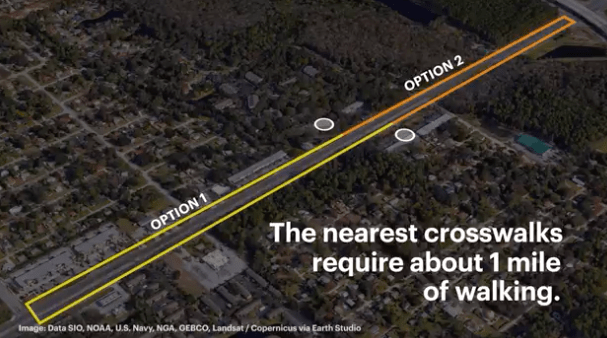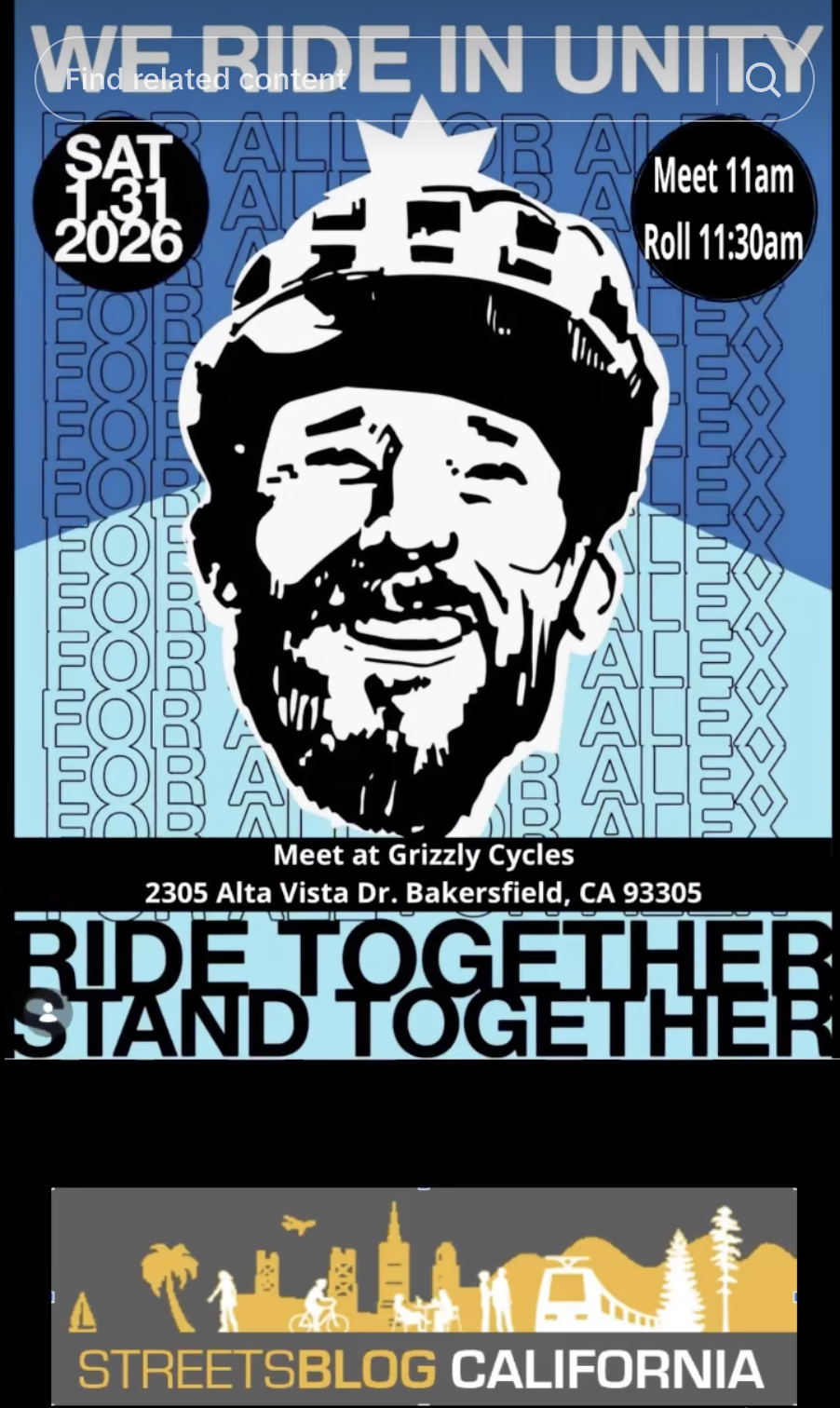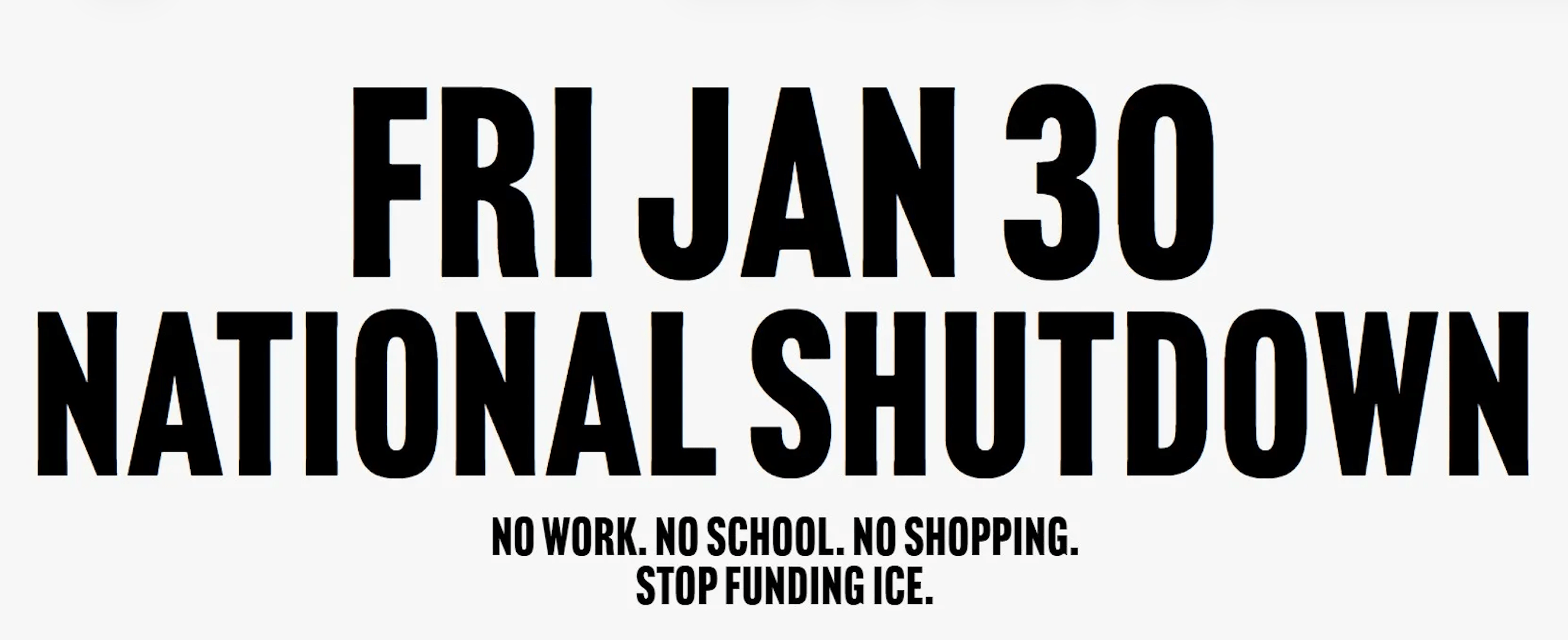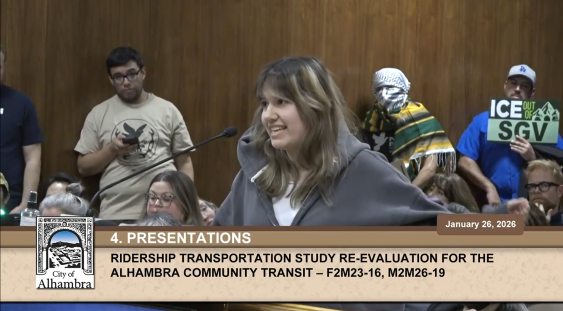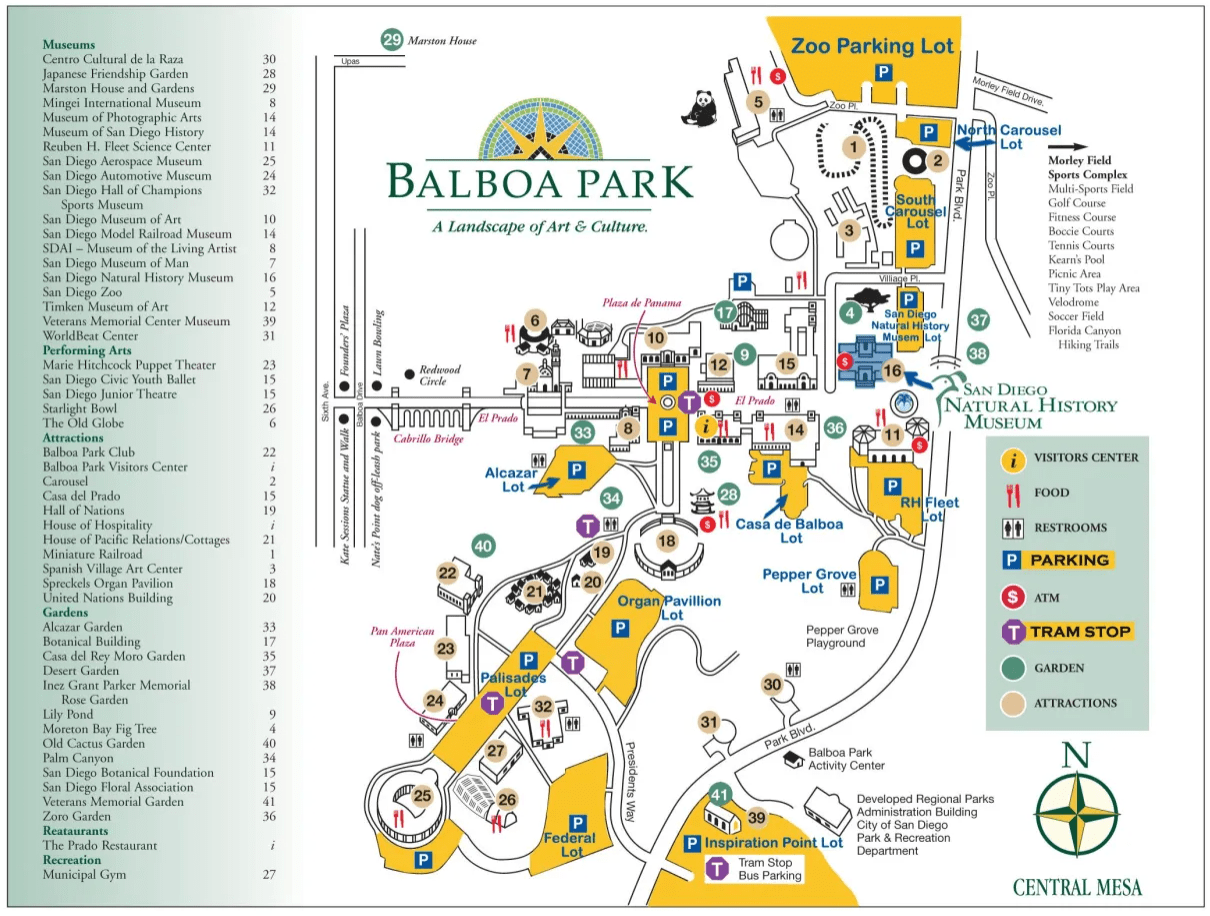A bombshell new report from ProPublica and the Florida Times-Union examines Jacksonville's profoundly broken and racially biased pedestrian enforcement. While the criminalization of walking while black may be especially terrible in Jacksonville, it is widespread throughout America.
Jacksonville is one of the nation's most dangerous cities for walking. Rather than take this public safety issue seriously, the city has concocted an absurd array of laws so police can arbitrarily cite people on foot for harmless behavior. The burden of this enforcement does not fall equally -- the investigation found a clear pattern of anti-black discrimination.
Using jaywalking enforcement as a pretext for racial profiling is so pervasive, you have to wonder if there are any major cities in America where it's not a problem. And keep in mind that cities continue to enact new pretexts for arbitrary stops, like legislation outlawing the use of cell phones while crossing the street, that open new avenues for racially-biased enforcement.
Here are some of the more egregious findings from the ProPublica/Times-Union investigation.
Racial bias in enforcement
Between 2012 and 2017, 55 percent of pedestrian citations were issued to black people, who make up just 29 percent of the city's population.
In other words, black people in Jacksonville are three times more likely to be ticketed for a pedestrian infraction than white people. And the disparity is worse in the city's poorest neighborhoods, where black residents are six times more likely to get stopped than white residents citywide.
Police use jaywalking as a pretext to search people without cause
Jacksonville police were unapologetic about using jaywalking-type infractions as a pretext for stopping and searching people.
"Shame on him that gives me a legal reason to stop him,” Jacksonville Undersheriff Patrick Ivey told reporters.
Rules about walking are impossible to follow
Jacksonville has a slate of laws on the books that are so voluminous, just about anyone walking any distance would run afoul of them. There are 28 different violations for people traveling on foot, including such trivialities as "not crossing at a right angle" and "crossing on a yellow light."
Police ticket people who don't even violate the rules
The rules are so complex, even police didn't understand them very well. The most common citation -- crossing outside a crosswalk -- was applied incorrectly about half the time. Police gave tickets to people legally crossing in 353 cases between 2012 and 2017, the investigation found.
Police officers themselves break the rules
ProPublica and the Times-Union observed uniformed officers routinely breaking the same rules they were citing black people for. You can see footage of police jaywalking in the opening segment of this video:
Pedestrian fatalities increased
The effect of these tickets on pedestrian safety can't be isolated very scientifically. But all signs point to this enforcement having no positive impact whatsoever. During the study period, pedestrian fatalities increased each year.
Fines mire people in a poverty trap
For many people stopped, the injustice went beyond being unfairly targeted for something trivial. The consequences were much more severe.
Between 2012 and 2017, Jacksonville police issued 2,200 citations for walking infractions. At the time the report was released, only half of those cases had been resolved either in court or through the payment of fines. In many of these unresolved cases, that means people are struggling to pay the fine and getting trapped in a cycle of indebtedness that can ruin their credit and lead to other penalties like license suspensions, which can be economically devastating in car-centric places like Jacksonville.
Be sure to check out the full report from ProPublica and the Times-Union, a thoughtful and inspired piece of reporting.
